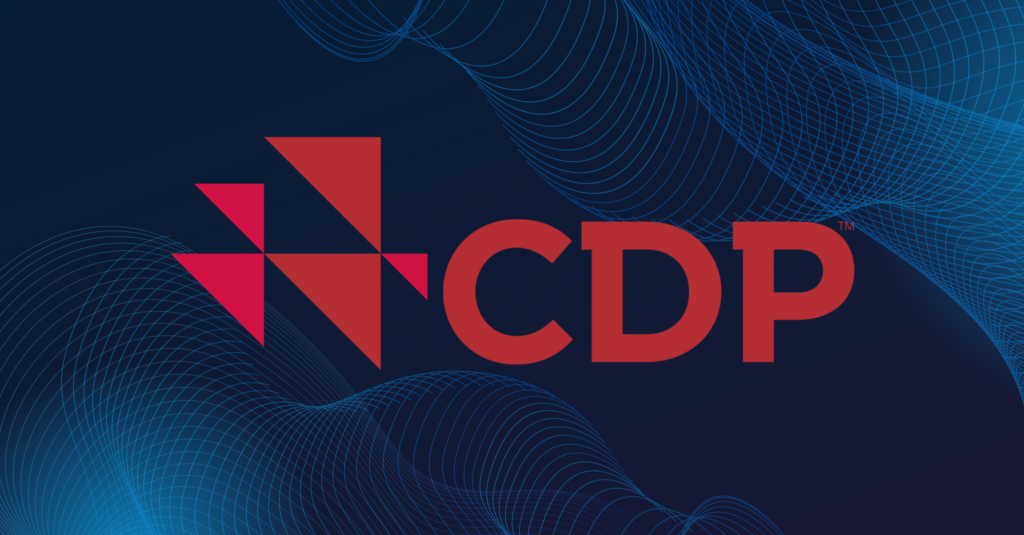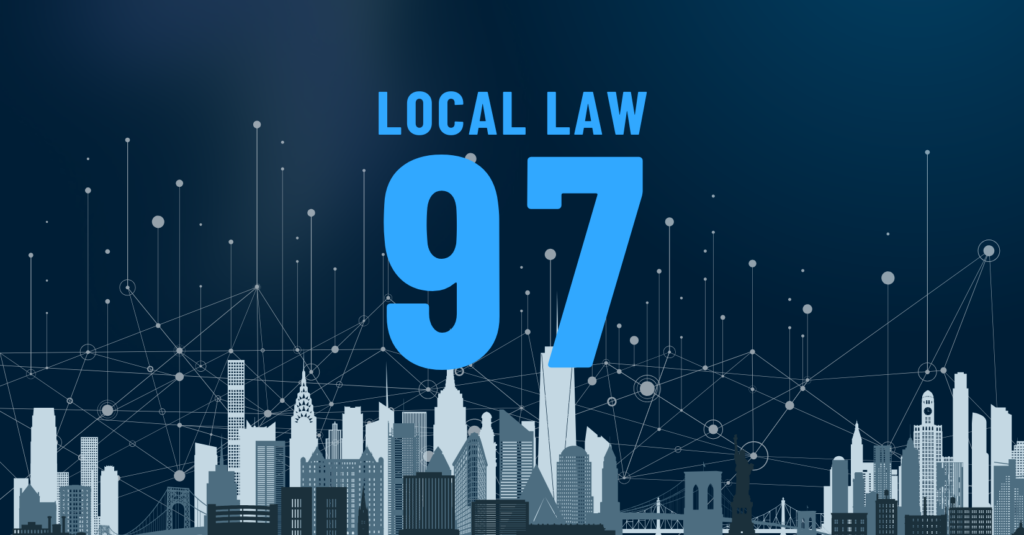CDP (formerly Carbon Disclosure Project) is a global non-profit that runs the largest voluntary environmental reporting platform in the world. This structured platform allows companies to disclose their environmental performance in 3 main critical areas: greenhouse gas emissions, water management, and deforestation.
CDP’s goal is to drive transparency and encourage action on environmental issues by collecting and sharing data that can influence investors, policy makers, and other stakeholders. Unlike many other voluntary sustainability reporting frameworks and regulations that focus mainly on climate risk (GHG emissions), CDP encourages a more holistic response from companies as they address not only the climate crisis but the interlinked nature crisis as well. A wider coverage of issues, such as plastics and biodiversity has also been included in the questionnaire this year to reflect this.
Link to 2024 Guidance and Questionnaires: https://www.cdp.net/en/guidance
Amidst the wave of global sustainability reporting framework consolidation and standardization, CDP still remains intact as an independent and highly trusted pillar that is integral to the reporting landscape. Despite the many changes to reporting frameworks out there, there are still standards and metrics that are relevant to CDP reporting only (ie. water, forests), which set it apart as crucial for businesses to understand. In 2023, more than 23,000 companies representing two thirds of global market capitalization reported environmental data to CDP, surging by 24% compared to 2022. The reporting entities also include 73 percent of the S&P 500. While CDP reporting remains voluntary, its relevance to sustainability at large and connection to emerging regulations ensures that companies are still faced with requests from key stakeholders to report to CDP year after year.
Key Updates:
CDP has significantly revised the reporting process for 2024, with key changes to the scope and structure of the 2024 CDP questionnaire including:
- ISSB Alignment: CDP’s 2024 corporate questionnaire now aligns with the International Sustainability Standards Board (ISSB) IFRS S2 climate standard. As a result, the questionnaire includes some new and some updated questions, as well as guidance to help companies understand where and how they can provide information that aligns with IFRS S2.
- Future Alignments: CDP previously announced it would work with the European Financial Reporting Advisory Group (EFRAG) to maximize alignment with the European Sustainability Reporting Standards (ESRSs) on environmental topics. That work is ongoing. In addition CDP plans to align with the Taskforce on Nature-related Financial Disclosures (TNFD) framework.
- New Questionnaire Formats: The climate change, forests and water security questionnaires have been integrated into one. As a result, CDP has incorporated environmental issues like biodiversity, plastics and land more systematically and eliminated duplicate governance and strategy questions. Rather than opt-in to separate water- and forest-related questionnaires, companies will now be prompted to provide disclosure on forests and water security in the integrated questionnaire based on an impact assessment methodology developed by CDP. The new process uses self-reported company activities, both directly and in the value chain, and associated revenues to identify companies that likely have critical water- and forest-related exposures. This application of CDP’s impact assessment methodology will significantly increase the number of reporting entities asked for data on forests and water security.
- Updated Timelines: For 2024, the response window for companies to submit their disclosure will be from June 04, 2024 to October 02, 2024.
- 4 June 2024 – The response window opens for questionnaire submissions. Reporting organizations can sign in and activate their questionnaires at this time.
- 18 September 2024 – The scoring deadline for the 2024 disclosure cycle. The deadline for submitting the questionnaire has shifted in 2024 (previously the end of July) to allow organizations to properly implement the changes to this year’s questionnaire and process.
- 2 October 2024 – Corporate disclosure deadline for 2024 disclosure cycle. Note companies that submit between 18 September and 2 October will not be eligible to receive a score.
- December 2024 – CDP releases 2024 scores.
Scoring:
CDP allows customers and investors to formally send out requests for companies to disclose their environmental data by filling out online questionnaires about climate, deforestation, and/or water security. CDP then reviews the completed questionnaires and assigns a score based on how the business affects people and the planet, as well as the thoroughness and transparency of its response. CDP then shares the evaluation with the stakeholder(s) who requested the disclosure, along with the reporting business. However, organizations do not have to wait for a CDP request to begin reporting and can also submit a voluntary disclosure, which helps signal to investors and consumers that they are committed to environmental action.
There is the option to choose whether or not to make your questionnaire responses public, but all companies that receive disclosure requests from investors are listed on the CDP website, and scores are made widely available whether or not your response is public.
Due to wide changes made to the CDP questionnaire made this year, there are some nuances to scoring to be made aware of. The newly integrated questionnaire does not mean companies now need to respond to all three environmental themes. At a minimum, companies will be asked to respond to the Climate Change questions as well as Plastics and Biodiversity questions. Questionnaires will cover relevant environmental issues for a company based on sector or business activity in line with the Activity Classification System (ACS) used by CDP. CDP will release the methodology for assessing whether a sector will receive forests and water questions in due course. The approach for investor-requested companies will be the same in 2024. It should be noted that companies will receive separate scores for Climate Change, Forests, and Water Security, with Biodiversity and Plastics not being scored this year.
The Importance of CDP:
While CDP disclosure isn’t mandatory, it’s in your best interest to do it. Here’s why:
- Preparing for regulations: The alignment of CDP’s framework with current and upcoming standards, such as the TCFD, ISSB S2, TNFD, ESRS, and the SEC Climate Disclosure Rule, highlights its commitment to consistency and relevance in sustainability reporting. The integration of these frameworks into the CDP questionnaire has not only streamlined the reporting process, but ensured that companies reporting through CDP will very likely be able to use the same data reported to meet regulatory requirements in many different jurisdictions.
- Reputation and Trust: CDP is considered a top-rated provider according to both corporate and investor respondents, who regard it as very valuable in terms of data quality and coverage. This can enhance an organization’s reputation with customers, partners, and the public.
- Risk Management: By assessing and disclosing environmental impacts, companies can better understand and manage risks associated with climate change, resource scarcity, and regulatory changes. Answering CDP’s questions will help you identify gaps and opportunities in your emissions reduction journey.
How Can WatchWire Help?
In order to successfully report to CDP and discover where your company stands with regards to ESG and sustainability, it is essential for you to have quality energy, sustainability, and utility data at your fingertips. Such data can be acquired either manually or automatically via software tools.
The integrated energy and sustainability functionality of WatchWire coupled with our automatic ingestion of utility invoices and emissions data will allow you to provide more accurate and comprehensive data to relevant reporting frameworks. We offer integrations and Excel exports for CDP reporting, as well as the automated collection of quantitative data for multiple sections of the CDP questionnaire. Because WatchWire automatically captures and audits comprehensive utility and emissions data, the platform is known for high data accuracy and data coverage. This, combined with the clear visuals and data integration capability is crucial in providing audit-ready data.
More About WatchWire
WatchWire by Tango is a market-leading, energy and sustainability data management platform that uses cloud-based software to collect, automize, and analyze utility, energy, and sustainability data metrics. WatchWire streamlines, automates, and standardizes your sustainability reporting process by integrating directly and/or providing reporting exports to ENERGY STAR Portfolio Manager, LEED Arc, GRESB, CDP, SASB, GRI, and more. The platform provides customizable dashboards, which allow asset managers, sustainability managers, engineers, and more to monitor individual key performance indicators (KPIs) and create custom views for specific use cases.
To learn more about WatchWire and its capabilities, you can visit our website, blog, or resource library, request a demo, or follow us on LinkedIn, Instagram, or Twitter to keep up-to-date on the latest energy and sustainability insights, news, and resources.
 Top Sustainability Trends to Watch in 2025
Top Sustainability Trends to Watch in 2025

 Log In
Log In









